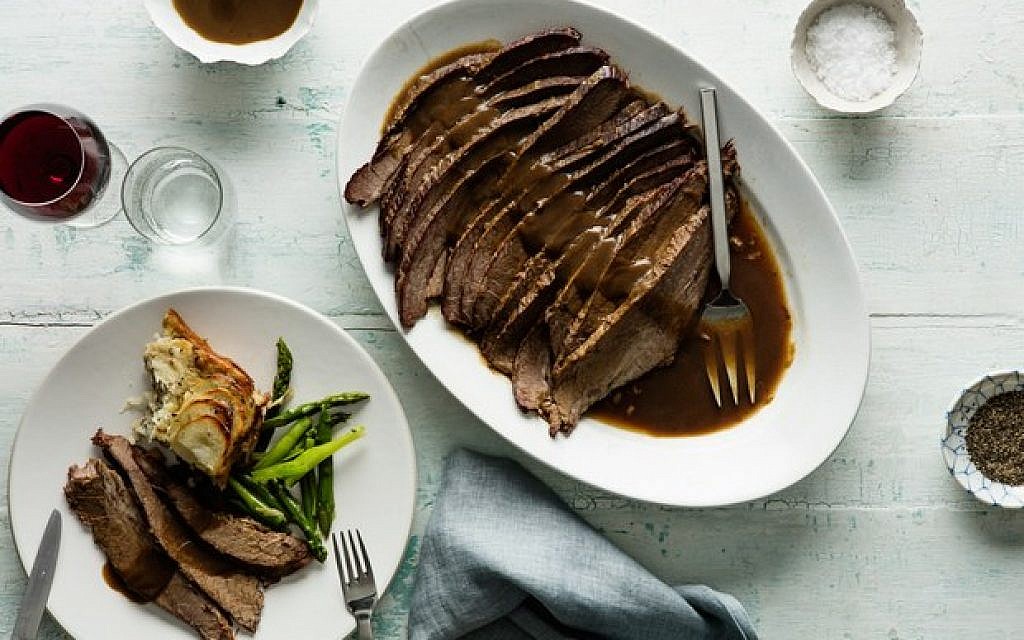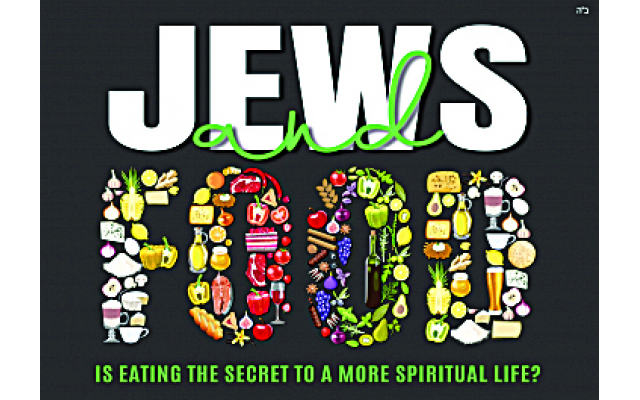Jews and Food: We Are What We Eat
What is it with Jews and food? And is eating the secret to a more spiritual life? That’s something Rabbi Ari Sollish is attempting to answer.
Kevin Madigan is a senior reporter for the Atlanta Jewish Times.
What is it with Jews and food? And is eating the secret to a more spiritual life? That’s something Rabbi Ari Sollish is attempting to answer with a four-part course at the Intown Jewish Academy that runs from Jan. 22 to Feb. 14.
“We have a lot of courses; sometimes Jewish history, Jewish laws, or Jewish mysticism,” said Rabbi Sollish. “The concept here is food. You can’t do anything Jewish without food. If there’s a holiday, there’s food. If there’s a life cycle event, there always some type of food. It’s such a part of the Jewish experience.”
The series seeks to explore the deeper associations that Jews have with the food they eat. How did it become a part of the Jewish condition that there’s always food involved with the Jewish moment or celebration? Where does that association come from and what is the deeper connotation behind eating? Or of the kosher diet?
“We will talk about the significance of certain types of food that we eat,” Rabbi Sollish said. “For example, meat and which part of an animal are we supposed to eat, or which part is perhaps not kosher, and what different parts signify. … What about the specific Jewish prohibition of eating the blood of an animal? What that signifies, and what the spiritual meaning of all of it is.”
The intricacies of Jewish dietary laws, known as kashrut, will be addressed. Kashrut regulations stipulate, for instance, that mammals and birds must be slaughtered in accordance with Jewish law; animals that died of natural causes or were killed by other animals must not be consumed. The animal to be slaughtered must have no flaws or disease. This restriction does not include fish, which, according to the Torah, can simply be “gathered.”

It gets quite complicated. “One of the objectives of the course is that in Judaism there are really a lot of teachings on this,” Rabbi Sollish said. “What we put in our bodies, on a practical as well as spiritual level, and the effects that it has.”
Why do Jews observe all these laws? According to the Mamre Institute, it’s because the Torah says so. “The Torah does not specify any reason for these laws, and for a Torah-observant, traditional Jew, there is no need for any other reason. Some have suggested that the laws of kashrut fall into the category of chukkim – laws for which there is no reason.”
The first lesson of the course, which will include tastings, deals with why Jews are so obsessed with food and other less healthy aspects of Jewish eating traditions.
“There is a lot of stuff that is kosher that we probably should not be consuming too much of or perhaps even at all. Just because something is permitted in the rubric of Jewish thought and teachings doesn’t necessarily mean that it’s good for the body,” Rabbi Sollish said. “I think that today the trend is mindful eating. We’re careful about what we eat. Whether we’re on a certain type of diet or just trying to be healthy, we are very mindful of what we put in our bodies.”
Rabbi Sollish believes that just as we have a body and a soul, food does also. “The body is what we see, the soul is the energy of the food, not just the physical energy it gives us. There’s also spiritual energy to all the food that’s out there and really the exploration is about, not only the physical part of it, but the spiritual energy present in the food.”
So what does Rabbi Sollish like to see served when he goes to a special event? “I’m thinking babka, brisket, and a good bottle of kosher wine,” he said.




comments